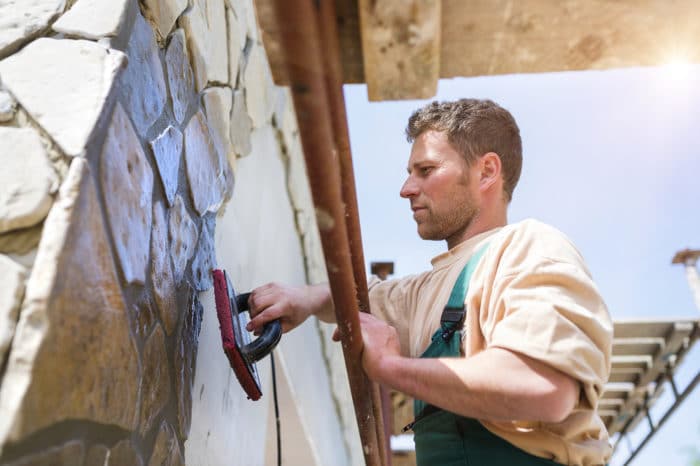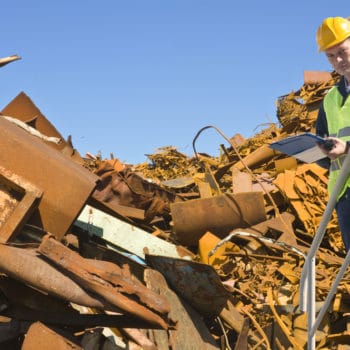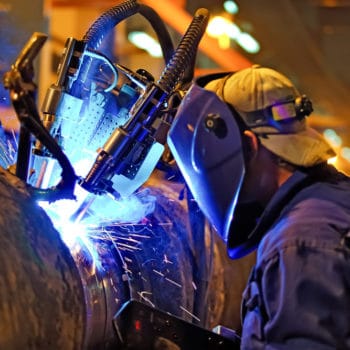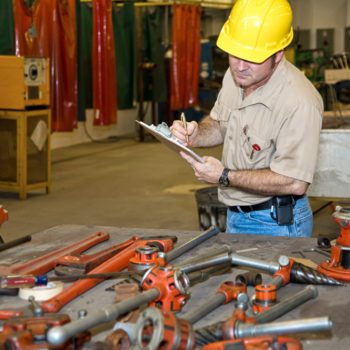Why We Love It
-
$42,080Potential Avg. Salary
-
13.1%Job Growth Rate
-
Growing DemandJob Outlook
-
Dependable Daily WorkloadCareer Attribute
Cement and concrete masons are construction workers who specialize in pouring and installing cement and concrete. They specialize in the properties and behaviors of the materials, providing concrete installations that withstand weather conditions and avoid breakage due to expansion and contraction.
Recommended Schools
What is a Cement and Concrete Mason?
The following job responsibilities are common for individuals in cement and concrete mason roles:
- Interpret blueprints to determine where and how to install concrete and cement
- Pour, shape, color, even, and finish cement and concrete
- Use detailed knowledge of the properties of cement and concrete to provide installations that withstand changing weather conditions
- Install reinforcing materials like lath and rebar
A Day in the Life
Cement and concrete masons are construction workers who specialize in cement and concrete installations. They may install concrete to create or repair roads, highways, interstates, parking lots, parking garages, driveways, or sidewalks. They use specialized, detailed knowledge of the properties and behaviors of concrete to form installations that will not break or be damaged by changing weather conditions; heat, cold, wind, and rain can all alter the properties of cement and concrete and create defects and breakages if improperly installed.
The work of a cement and concrete mason begins by interpreting the blueprints or other plans for a project. The cement and concrete mason read the plans to determine where the materials need to be installed and what quantity of materials will be needed. Then, the cement and concrete mason begins mixing the cement and concrete. For large projects, the cement and concrete mason drives a special cement truck—with a spinning container that keeps the materials mixed—to the job site.
The cement and concrete mason may need to install lath, iron, or rebar to support the concrete installation, though this work may be performed by a team of metal workers or erectors. With supporting materials in place, the mason begins pouring and laying the concrete. He/she ensures that concrete and cement are poured in the right places and in the correct amounts. Once the materials are laid and dried, the mason works to even and smooth the concrete using specialized power tools.
Typical Work Schedule
Most cement and concrete masons work full-time schedules, but the hours worked can be irregular. Cement and concrete masons who work on roadways may need to work in evenings or on weekends to avoid rush-hour traffic patterns. Overtime may also be occasionally required to meet project deadlines.
Projected Job Growth
Demand for cement and concrete masons is expected to grow in the coming decade to support new development projects, as well as to repair aging roadways throughout the U.S.
Typical Employers
Most cement and concrete masons work for construction companies that specialize in completing residential, commercial, or government construction projects. A small set of cement and concrete masons are self-employed and perform their services on a freelance basis for individual clients.
Recommended Schools
How To Become a Cement and Concrete Mason
A high school diploma is sufficient in most cases for finding work as a cement and concrete mason, though many masons get a head start in the field by taking basic masonry courses through a trade or vocational school after high school. These courses teach students about the basic principles of cement and concrete, installation best practices, and techniques used on the job. Most in-depth training occurs on the job in an apprenticeship, but previous education in the field may increase competitiveness when applying for paid apprenticeship roles.
After high school—or after completing basic masonry courses at the college-level—you’ll need to find an apprenticeship with a construction company where you can learn the role under an experienced cement and concrete mason. These apprenticeships are usually paid positions where you undergo training by assisting experienced cement and concrete masons with their day-to-day responsibilities. You’ll learn to read blueprints, measure and mix concrete, understand building codes, and adhere to safety protocols.
Once you’ve completed a few years as an apprentice, you’ll be qualified to move into higher-paying roles as a cement and concrete mason. You can seek promotions at your apprenticeship company if desired, but you’ll also be qualified to seek employment with other construction companies in your area.
Cement and Concrete Mason Salary Data
We’ve provided you the following to learn more about this career. The salary and growth data on this page comes from recently published Bureau of Labor Statistics data while the recommendations and editorial content are based on our research.
National Anual Salary
Low Range
$30,660Average
$42,080High Range
$65,160National Hourly Wage
Low Range
$15/hrAverage
$20/hrHigh Range
$31/hrHow do Cement and Concrete Mason salaries stack up to other jobs across the country? Based on the latest jobs data nationwide, Cement and Concrete Mason's can make an average annual salary of $42,080, or $20 per hour. This makes it an Above Average Salary. On the lower end, they can make $30,660 or $15 per hour, perhaps when just starting out or based on the state you live in.
Salary Rankings And Facts
#493 Nationally for All Careers
Highest Education Among Cement and Concrete Masons
- 0% Doctorate
- 0.1% Masters
- 2.1% Bachelors
- 2.4% Associates
- 12.8% College
- 36.9% High School
- 45.6% Less than High School
Job Growth Projections and Forecast
2014 Total Jobs
155,2002024 Est. Jobs
175,500Job Growth Rate
13.1%Est. New Jobs
20,300How does Cement and Concrete Mason job growth stack up to other jobs across the country? By 2024, there will be a change of 20,300 jobs for a total of 175,500 people employed in the career nationwide. This is a 13.1% change in growth over the next ten years, giving the career a growth rate nationwide of Below Average.
Growth Rankings And Facts
#129 Nationally for All Careers
What Companies Employ The Most Cement and Concrete Masons
| Industry | Current Jobs | New Jobs Needed | % Increase |
|---|---|---|---|
| Poured concrete foundation and structure contractors | 61,100 | 10,300 | 10% |
| Other specialty trade contractors | 27,000 | 2,400 | 3% |
| Nonresidential building construction | 14,200 | 1,000 | 1% |













